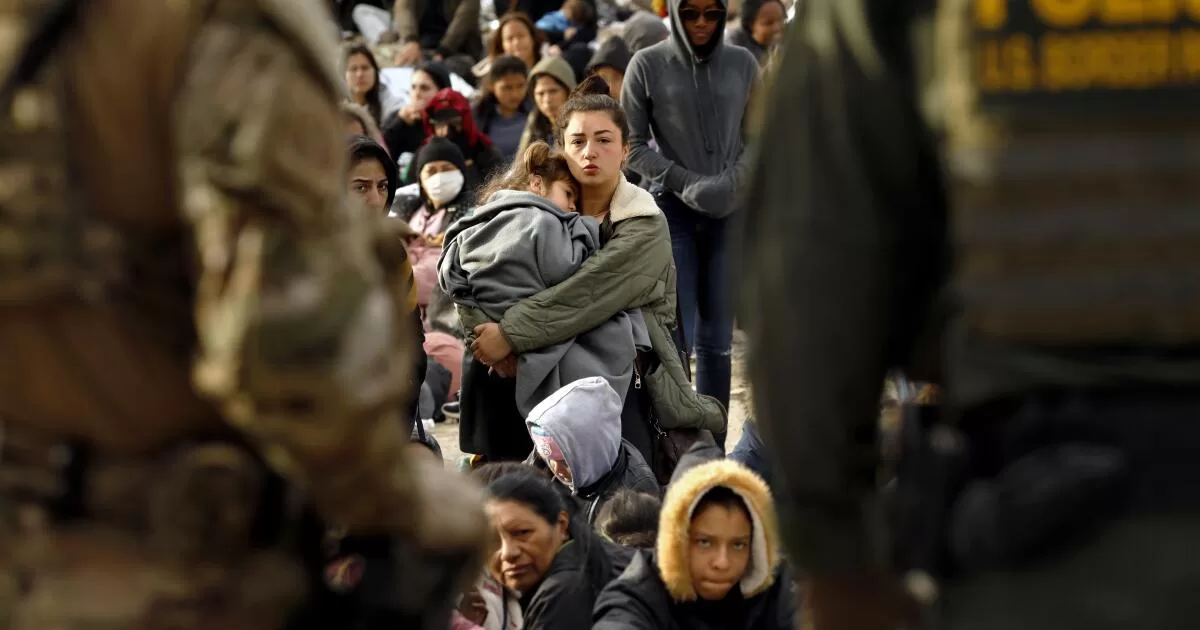The money is part of a $300-million national effort announced Friday by the Federal Emergency Management Agency.
Most of the California funding will be split between San Diego County and the Catholic Charities Diocese of San Diego. More than $6 million goes to Riverside County.
An additional $341 million will be used to establish a competitive grant program and allocated before the end of the fiscal year Sept. 30, the administration said.
It’s less funding than programs helping migrants had hoped for, representing an 18% cut from last year’s $780-million total.
But California’s overall share is $3 million higher than last year; San Diego’s allotment rose by $10 million.
Border nonprofits including Jewish Family Service of San Diego are hailing the increase as a win that’s reflective of the recent uptick in migrant arrivals near the California border.
In an announcement Friday, the Department of Homeland Security called on Congress to pass a stalled bipartisan national security bill that included more border funding and other assistance.
California Gov. Gavin Newsom praised the administration and blamed House Republicans for failing to provide enough money to deal with the crisis.
“Let’s be clear: President Biden is doing all he can to fund border security and humanitarian efforts while Republicans in Congress are choosing border chaos for political gain,” Newsom said in a statement.
Republicans blame Biden for mishandling the border and argue that FEMA resources should be spent on American families struggling with homelessness, not arriving migrants.
Interior states including Illinois, Colorado and New York also got funding. Texas, Florida and Arizona leaders have spent millions transporting migrants to Democratic strongholds since 2022 in an effort to force places with more welcoming immigration policies to share the responsibility of caring for recent arrivals.
California has funded humanitarian services for migrants released from federal custody at the border, including $150 million last year. But, with the state facing a massive deficit, no border funding has been budgeted this year.
“California cannot maintain its efforts without federal support and has continued to advocate to Congress to provide federal funding to local communities that are receiving new arrivals,” California Health and Human Services Agency officials wrote in their January budget summary.
Jewish Family Service has operated a shelter for recently arrived migrants for nearly six years. The vast majority of migrants who arrive near San Diego don’t stay long-term, said Kate Clark, the organization’s director of immigration services. The shelter has space for around 1,000 and provides the most vulnerable migrants — those with young children, or who are sick or injured, or are LGBTQ — time to rest, charge their phones, call loved ones and coordinate travel plans.
Clark said the organization relies heavily on funding funneled through Catholic Charities.
State funding, which has served as a “critical backstop during periods of uncertainty” about federal funding, runs out June 30, Clark said. Altogether, funding hasn’t been enough to sustain recent migration levels, she said.
In March, federal agents arrested nearly 34,000 migrants in the San Diego region, up from 23,000 a year ago, according to Customs and Border Protection figures released Friday. San Diego remains the No. 2 region for arrivals, after Tucson, since stepped-up enforcement by the Mexican government led migrants to shift away from the Texas border.
As migrant arrivals at the California-Mexico border have increased, Customs and Border Protection has turned to street releases and holding migrants between border walls to reduce the number of people in its short-term facilities. Organizations at the border have been stretched thin, and the San Diego migrant welcome center closed in February after funding dried up.
“It’s important for us to have all levels of government be part of the solution,” Clark said. “Immigration is within the federal government’s purview, but at the end of the day California is a border state.”
